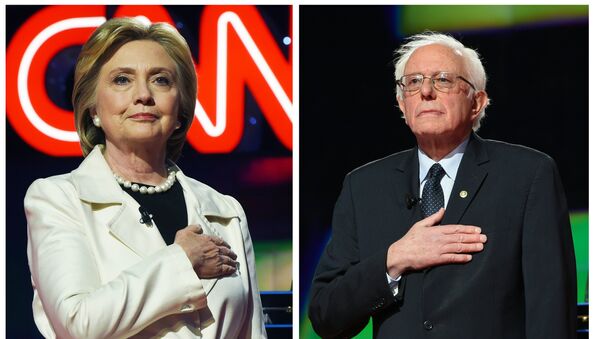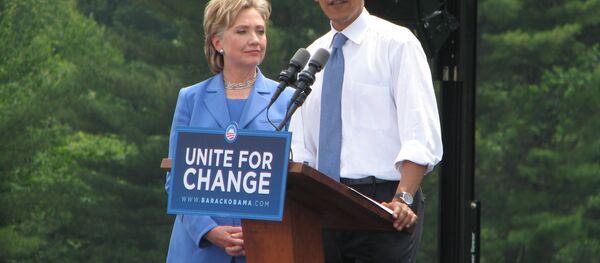Suspicions began with a tweet by Los Angeles Times editor Christina Bellantoni, who noted that an email promptly sent out to Clinton supporters after the controversial declaration contained images labeled "Secret Win."
The images in this Clinton email are labeled "secret win." pic.twitter.com/YR4uCdQTZv
— Christina Bellantoni (@cbellantoni) June 7, 2016
Bernie Sanders supporters quickly assumed that there was a secret agreement between the Clinton campaign and the media to announce the former State Secretary's victory just prior to the remaining Democratic primaries.
Sorry, yesterday I said there was no proof of collusion. Is #SecretWin the smoking gun? https://t.co/DXv7ZbDRzZ
— Keith Kahn (@keithkahn) June 7, 2016
Moreover, individual urls of separate files creating the larger image show that they were created by the Clinton campaign over the weekend, even before the controversial "presumptive nominee" declaration was made.
The email controversy only aggravated the outrage of Sanders supporters with the way AP reported that Clinton had secured the Democratic Party nomination, using the basis of a combination of pledged delegates and promised superdelegate support.
Jim Naureckas, communications director for the media watchdog group Fairness & Accuracy In Reporting (FAIR), said Tuesday that premature declaration is a disservice to the democratic process.
"Superdelegates…can declare their intention to vote for one candidate or another, just as voters can tell pollsters who they intend to vote for before Election Day, but like voters they can (and do) change their mind at any time before the actual voting," he said, cited by CommonDreams.
"The timing of AP's announcement-on the eve of primaries in California, New Jersey, New Mexico, Montana and South Dakota, and caucuses in North Dakota-raises concerns of voter suppression, intentional or not."



